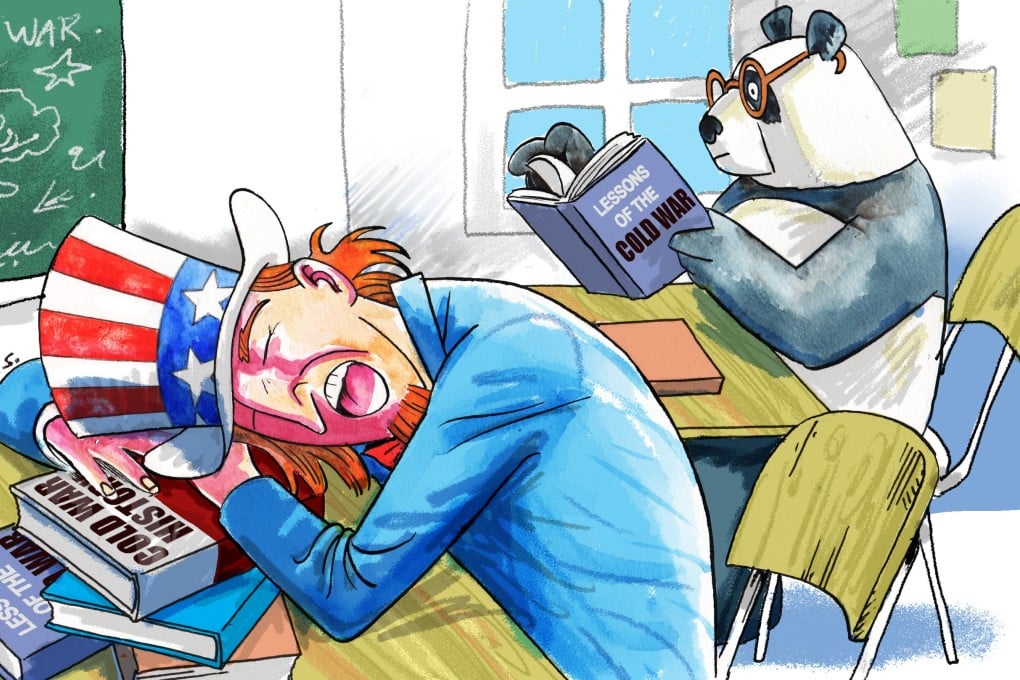Opinion | US’ failure to learn Cold War lessons will be to China’s benefit
- It’s not clear Washington has learned the deeper lessons of history, including why Beijing has avoided the Soviet Union’s fate
- Perhaps Chinese strategic thinkers foresaw this return to a Cold War decades ago, in broad outlines at least, and prepared accordingly

Today, it is worth reviewing American and Chinese assessments of the Cold War as these two countries find themselves on the brink of a new one. American narratives typically underscore three points.
Chinese assessments are not as succinct. First, and perhaps most importantly, Mao Zedong predicted an eventual Soviet collapse in 1956 following Soviet premier Nikita Khrushchev’s “secret speech” initiating de-Stalinisation.
As Mao put it, the Soviets had thrown away the two “swords” of Karl Marx – Josef Stalin threw away the sword of Vladimir Lenin and Khrushchev, the sword of Stalin. Mao believed this would make them prone to bureaucratic entrenchment and resistant to self-discipline and change, producing stagnation and decline.
Second, whether pushed by Leninist internationalism, post-war opportunism or the existential requirements of increasing great power competition, the Soviets fell into unsustainable, self-defeating imperialism and hegemony. This global power projection would be impossible to maintain even under the best circumstances, and all the more so as stagnation eroded capacity at home and abroad.

